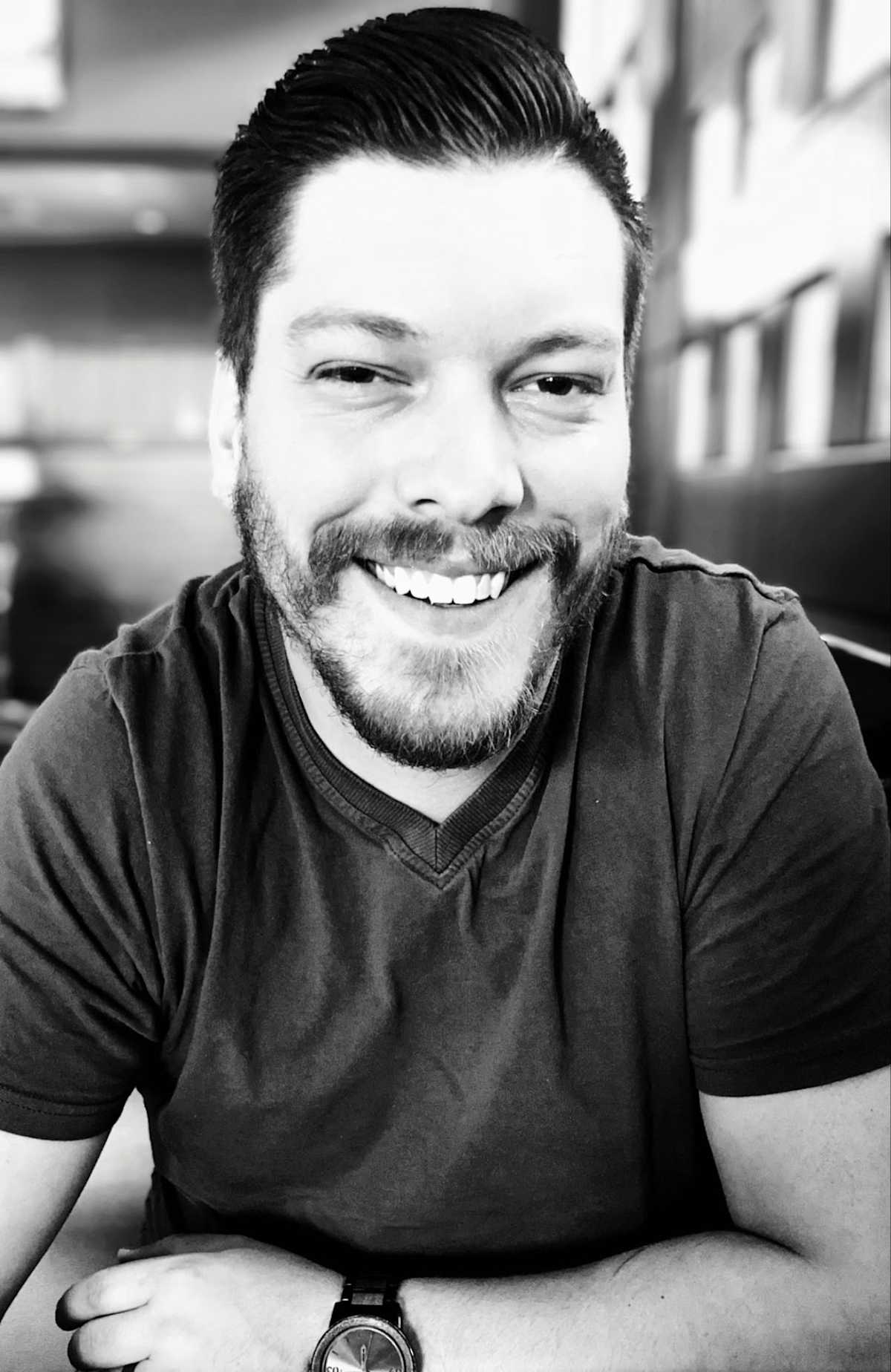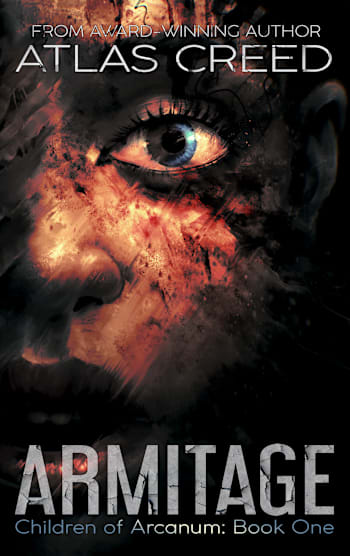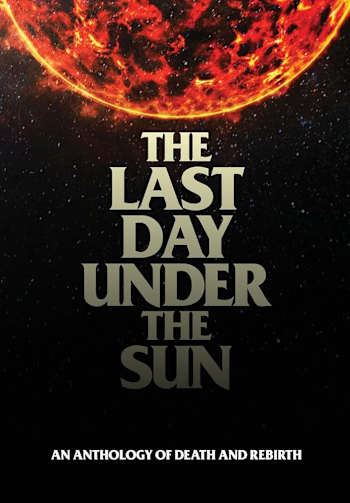When you spend as much time as I have among the stars, you come to appreciate the storytellers—those who have the courage to pull us into their worlds and make us feel, think, and dream. Today, I’m thrilled to introduce a creator who does exactly that: Atlas Creed. This multi-talented author has mastered the art of blending genres, crafting tales that are equal parts thrilling and thought-provoking. From dark urban fantasy to gripping paranormal thrillers, Atlas doesn’t just write stories; he creates experiences that linger long after you turn the last page.
Raised on a steady diet of Star Wars (Han shot first, of course) and a deep appreciation for the worlds created by Stephen King, Atlas infuses his works with a unique blend of imagination and authenticity. He’s a champion of indie publishing, having built a community through Indie Author Connect—a resource aimed at lifting up fellow writers. And whether he’s exploring themes of family, resilience, or the thrill of the unknown, Atlas approaches his craft with passion and heart.
Atlas's debut novel, Armitage, launched in 2024 to much acclaim, followed by a series of short stories and anthologies, including The Dragon Mist and Sentry in The Last Day Under the Sun. His upcoming projects promise even more excitement: a Shrek-themed anthology contribution (yes, really!) and the highly anticipated second installment of his series, Heritage.
Want to connect with Atlas? Join his vibrant community at Indie Author Connect (www.indieauthorconnect.com), or dive deeper into his creative journey on Discord. With a mix of upcoming projects and an ever-growing body of work, there’s no better time to explore the worlds of Atlas Creed.
Ok, let’s get the division out of the way, haha. I am a Star Wars fan and have been since I was younger. That being said, I got into Star Trek with the JJ Abrams “reboot,” if you will. This led me to the original films, and I have developed an appreciation for their art. Modern Star Wars has been hit or miss with their storytelling, unfortunately, but I still catch everything they put out. It’s getting near an addiction at this point.
Reboots – a great idea or a lack of creativity?
I have mixed feelings on this. Generally, I think rebooting something without adding any value to it is lacking creativity. But also, taking something great and stripping it of what made it great or disrespecting the source material doesn’t necessarily lack creativity, but it is wholly unnecessary. There are several success stories: Ocean’s 11, 3:10 to Yuma (a personal favorite), Freaky Friday (guilty pleasure), True Lies, and then, of course, you have some that could cause debate, like superhero movies (Batman, Superman, Spider-Man, etc.), Dredd, or The Hills Have Eyes.
Preferentially, original content over reboots any day.
A book that pleasantly surprised you?
I read The Gunslinger by Stephen King back in high school and wasn’t drawn in. The story was interesting, but the ending went a bit off the rails. I took a break from King for several years, but in my mid-twenties, I dove back into the Dark Tower series with The Drawing of the Three, and it blew me away. From there, I devoured the rest of the series and found that The Gunslinger was my least favorite of the bunch and nearly put me off my favorite book series.
What do you like to do when you’re not writing?
Spend time with my family. That’s the easiest answer. In fact, I often put writing aside to do just that—it is the greatest factor that slows down my writing, but I wouldn’t trade time with my family for anything in the world. Though, as I write this, I’m coming off the two-week winter break and one week of consecutive snow days, so I kind of want a break, hahaha.
What does your family think of your writing?
My parents and siblings couldn’t really care less. I get the almost obligatory “I’m proud of you” or “Writing a whole book is really impressive,” but I don’t believe any of them have sat down and read anything I’ve written. My wife is supportive, even though what I write isn’t typically her style. I am able to bounce ideas off of her, if for no other reason than to hear myself talk to see how it sounds out loud.
What was one of the most surprising things you learned in creating your books?
Ok, not sure if this is where the question was intended to go, but did you know the longest a person has ever been clinically dead (i.e., no brain activity detected) and recovered was 17 hours?? Typically, the brain experiences damage after about 4 to 5 minutes of oxygen deprivation, but Velma Thomas holds the record of being dead for 17 hours and recovered 10 minutes after being taken off life support. Yes, I used this in my book, and yes, I got the opportunity to school beta readers who contested me when I claimed my MC was clinically dead for 13 minutes!
Do you like to create books for adults?
I do! Under another pseudonym, I wrote a kids' book and plan to write more, but writing for adults—or, well, stories that are meant for people older than children—is where my true writing passion lies. I would love to have a long career doing just that, but I also enjoy writing kids' stories, especially rhyming ones.
Do you hear from your readers much? What kinds of things do they say?
Other than the reviews they leave, not so much. I would love to hear from my readers more. I would have absolutely no problem with an unsolicited message geeking out about my book or asking questions. I even have a Discord server that anyone is welcome to join and discuss my book in full or chapter by chapter.
What is the most unethical practice in the publishing industry?
How little authors are expected to accept making. Especially with audiobooks. eBooks generally get decent returns, especially from Amazon, retaining 70% of the sale. Physical copies make sense when you consider print cost and shipping; there are other services required to put in their expertise to bring your book to life, so I am okay making a little less. Granted, I think that we still make far less than we should, even on physical. But audiobooks are my crux. They require nothing physical, and the digital burden is not as heavy when you consider we have video streaming in High Definition done regularly. Audiobooks cost far more for the author to produce and cost next to nothing to the distributors (storage space and streaming audio is not cumbersome for large corporations), so for them to charge $15-$20 per audiobook only for the author to get $2-$3—I find it almost unfathomable how corporations justify how much they take for how little they provide.
I have written two books. One, Armitage, has been published, and the other, Heritage, is in the works. Technically, I have an unpublished book I wrote in high school, but you’ll never get me to admit its existence, haha. I love Armitage because it is my first published work, but I expect Heritage will be my favorite when all is said and done. I will say I am a sucker for side characters, and one of my favorites is in Heritage, so it’s hard not to already pick that one.
Do you try more to be original or to deliver to readers what they want?
I aim to be original. Readers want originality. There is a difference between what readers want and what companies like Amazon or Disney “say” they want. I won’t sacrifice originality to satisfy the status quo.
Does a big ego help or hurt writers?
It depends. Confidence, not arrogance, is vital in many areas, including writing. I think an ego is often required for writers to get published in the first place because you must put yourself out there. However, I think there needs to be balance. Being unable to take criticism or accept constructive advice is detrimental to growth, not just for writers but for everyone.
As a writer, what would you choose as your mascot/avatar/spirit animal?
Can I say Gandalf? I feel like Gandalf would be a really rad mascot!
What are you working on next?
Currently, I am working on Heritage, which is the follow-up to my debut novel, Armitage. I am also dabbling with a few short stories, one of which will be published in a Shrek-themed anthology.
What’s your favorite underappreciated novel?
Beggars in Spain by Nancy Kress. It’s such a great sci-fi read that asks many deep questions about humanity, community, and what it means to truly live. It’s a must-read.
Do you read your book reviews? How do you deal with bad or good ones?
I do. They are a great source of insight, as they often provide the only feedback a writer gets. Constructive criticism is fine, and even negative ones sting but can help you grow. That being said, I’ve also learned to take reviews with a grain of salt and remember that a single review isn’t the end-all-be-all of my writing.
What do you want readers to take away from your stories?
Hope. Whether it’s a happy ending, a bittersweet conclusion, or even something as tragic as life’s failures, I want them to see that hope can exist in many forms.
Have you ever killed off a character you liked?
Yes. It was brutal to write, but it was necessary for the story. Every time I wrote about them, I kept saying, “Why do I keep doing this to myself?!”
What do you have to say to your future self about writing?
Don’t stop. Keep pushing forward and creating, no matter what.



